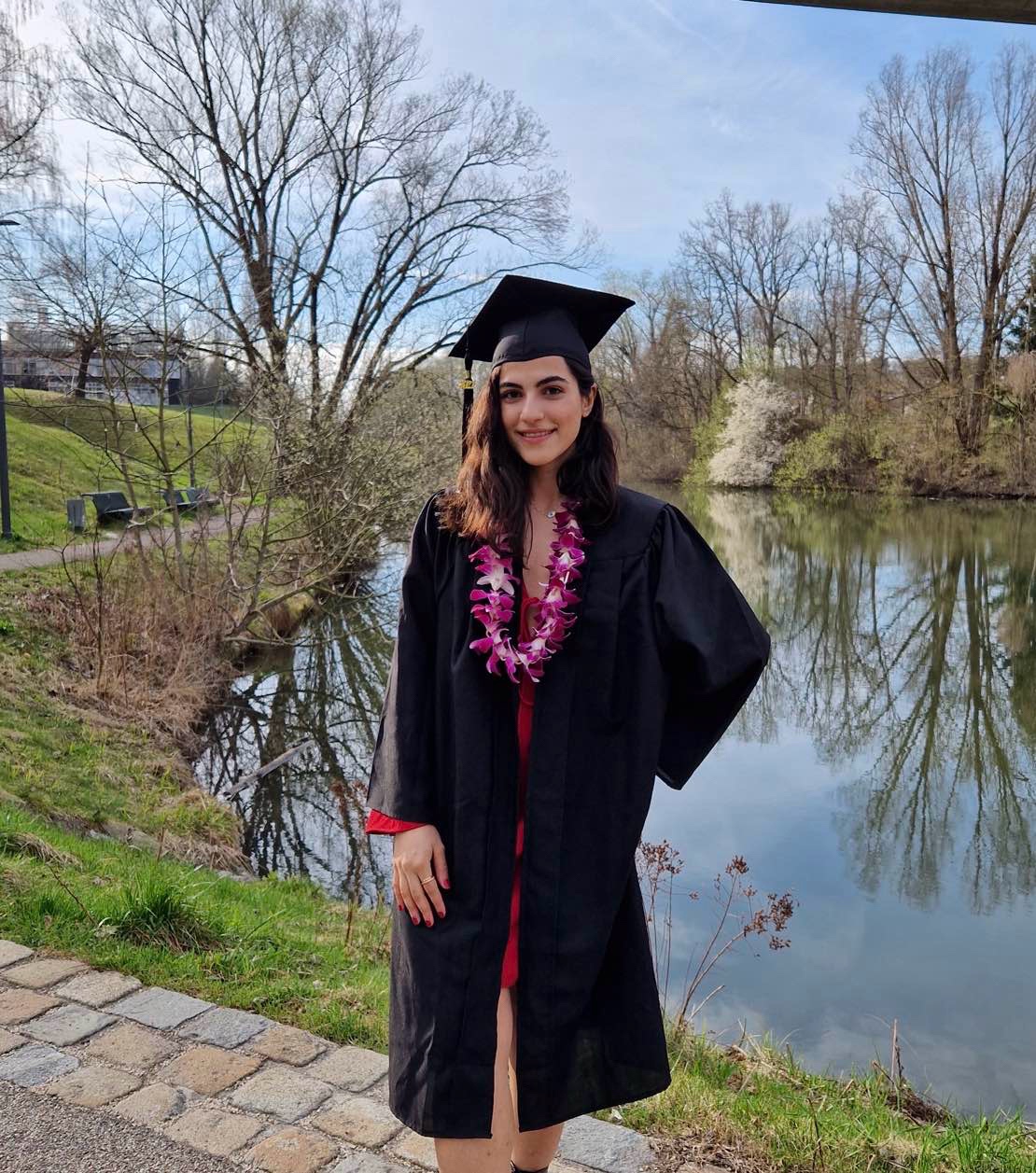How an Iranian Student Secured a Fully Funded Master's Scholarship in Nutrition and Biomedicine at TUM
Summary
University: Technical University of Munich (TUM)
Degree: Master’s in Nutrition and Biomedicine
Tuition: Free
Previous Education: Bachelor’s in Molecular and Cellular Biology from Alzahra University, Tehran, Iran (GPA: 18.5/20, equivalent to 1.5 in the German system)
Test Scores: IELTS: 8.0 (C1 level)

The Journey
I’m Ghazaleh Mohajeran Zadeh, originally from Tehran, Iran. My interest in biology began in high school, where I quickly decided to pursue a career in biological research. During my bachelor’s in Molecular and Cellular Biology at Alzahra University in Tehran, I developed a deep interest in immunology, and a personal experience with cancer later motivated me to focus on cancer research.
Educational Background
I earned a bachelor's degree in Molecular and Cellular Biology in Iran, graduating with a GPA equivalent to 1.5 in the German grading system (or 18.5 out of 20 in the Iranian system). During my bachelor's, I gained hands-on experience in many practical courses across different fields, which prepared me well for research and lab work. Additionally, I attended lectures in various areas, helping me decide to specialize further in my master’s.
How Did You Prepare to Apply for the Technical University of Munich (TUM)?
When I decided to pursue a master’s degree, I chose Germany as my destination and began learning German independently, even before deciding on a specific university or program. Eventually, I discovered the Nutrition and Biomedicine program at the Technical University of Munich (TUM), which appealed to me because of its flexibility in offering courses across biomedicine and nutrition. This program was conducted entirely in English, though some optional courses are only available in German. To meet the language requirement, I took the IELTS test, achieving an overall score of 8 (C1 level). TUM didn’t require German proficiency for this program.
In terms of application scoring, TUM evaluated my GPA, English test score, and bachelor’s curriculum alignment with the program. I scored highly and received direct admission without the need for an interview. For applicants with lower scores, an additional interview with department professors is required to assess suitability.
What Drew You to Choose Germany to Pursue Your Degree?
My top priority was staying as close as possible to my home country while accessing world-class education (which Germany offers.) Additionally, the absence of high tuition fees at top universities, including TUM, was essential for me. Unfortunately, tuition policies have changed, and now all non-EU students must pay a significant tuition fee.
How Did You Overcome the Language Barrier, and What Role Do You Think Language Plays as an International Student in Germany?
In general, there isn’t a significant language barrier in Germany unless you live in a small town or interact with older populations. From my experience, most Germans speak excellent English, so even without knowing German, you can communicate effectively, and people are usually very willing to help. Universities are highly international, and students typically speak English. However, there is a lot of paperwork required, especially in Bavaria, and it’s all in German, so having at least a B1 level in German can be very helpful. Nonetheless, many students come here without German knowledge and manage to adapt.
What Unique Academic Opportunities Have You Had in Germany That You Might Not Have Experienced Elsewhere?
Public universities in Germany receive substantial funding, so if you come from a less affluent country, you may be surprised by the well-equipped labs and the resources available for education, thesis projects, and internships. One aspect I particularly enjoyed was the close interaction with professors, where students are actively involved in meetings, presenting their work weekly, and building strong mentorship relationships.
What Were Some of the Challenges You Faced as an International Student in Germany, Particularly Regarding Living Costs or Part-Time Work Opportunities?
The German education system isn’t designed for students to work part-time, which is why “mini-jobs” (10 hours per week) are common, paying around €520 per month. Most students either receive government support, financial assistance from their parents, or work in student jobs, typically in labs or mini-job roles, which aren’t enough to cover full living expenses. As a non-EU student, you’re required to show proof of funds for your first year in Germany, and each year afterward to extend your visa, or to have a job contract that fully supports you. This requirement can be challenging, especially when your visa is tied to your financial situation or employment status.
Looking Back, Would You Recommend Studying in Germany for International Students Seeking Affordable Higher Education? Why or Why Not?
I would definitely choose Munich again. It’s a fantastic city for students, offering many job opportunities and a strong support system for graduates transitioning to work visas. The recent government initiatives for graduates have made it much easier to stay in Germany and pursue a career here after graduation.
Want to submit your
scholarship journey?
Submit Your Story Here!
More Scholarship Recipients

My name is Zara Qaiser. I’m originally from Singapore and Pakistan (yes, both!), and I am now pursuing a PhD in Public Pol .... Read more
- American University
- Columbian College of Arts & Sciences Doctoral Fellowship
- Economics
- Fully Funded Scholarships
- Graduate Assistantships
- Graduate Merit Award (American University)
- Pakistani Nationality
- Ph.D. Scholarships
- Public Administration
- Public Policy
- Singaporean Nationality
- The George Washington University
- United States
- University of Massachusetts Boston

Hello! My name is Sakshi Barhai, and I am from Pithora, a small town in the state of Chhattisgarh, India. After clearing the .... Read more

My academic journey toward biomedical science has been shaped by both curiosity and reality. Growing up in Pakistan, I obser .... Read more

Leave A Comment